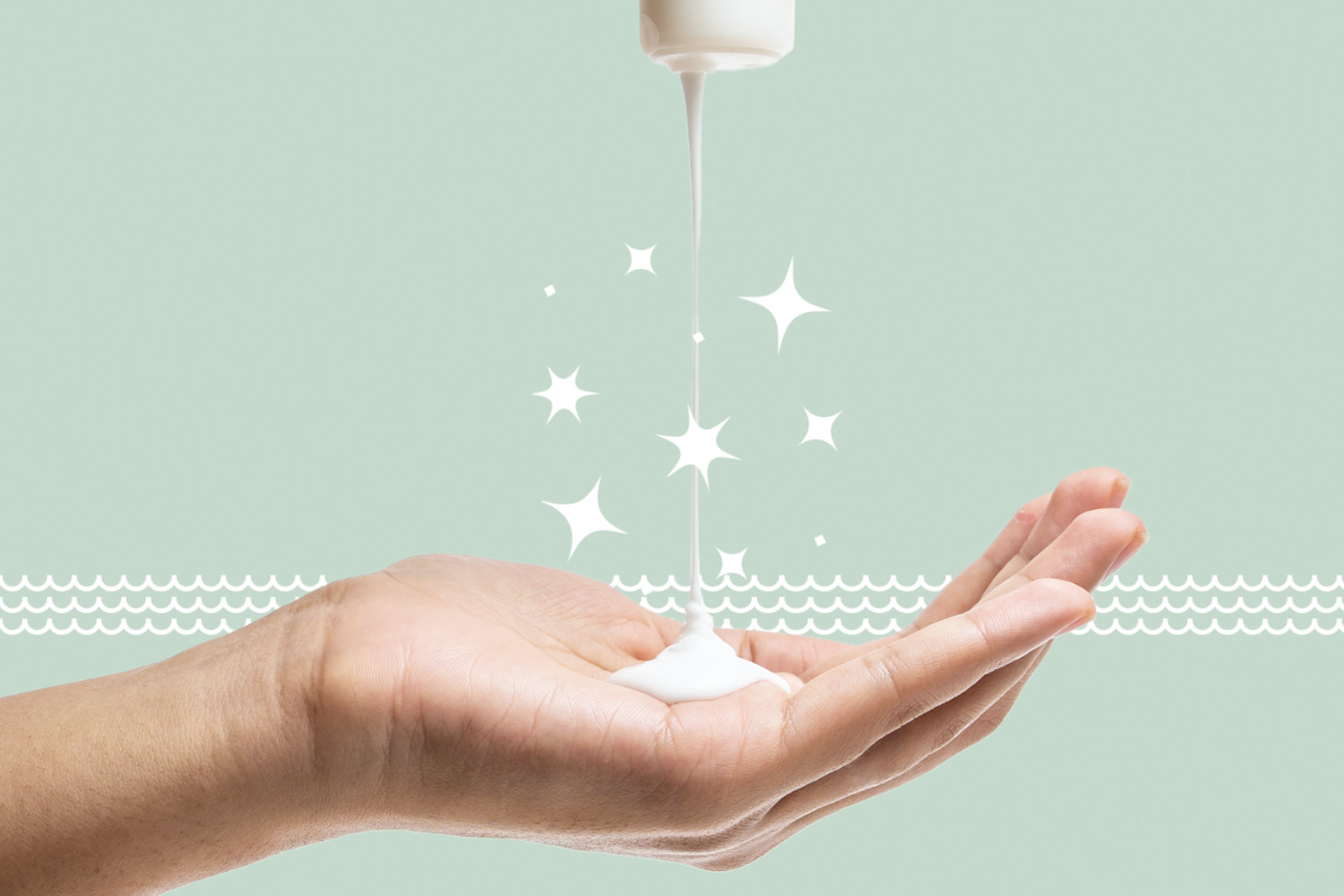Fertility Lubricants: How to Support Your Sperm when TTC
When you shop the intimate aisle at your favorite store, you’ve probably noticed that there are dozens of different types of sexual lubricants: “natural” lubricants, flavored lubricants, and even fertility lubricants. It can be difficult to choose from such a broad selection. So, what is the best lube to get pregnant — and do those “fertility lubricants” actually work?

Can Lube Help You Get Pregnant?
Maybe, maybe not. The idea behind fertility lubricants is that they are sperm-friendly, making it easier for sperm to travel to and fertilize an egg in the fallopian tube. Studies have shown that regular lubricants may damage sperm and inhibit its movement. But, studies also show that couples using lube were no less likely to get pregnant than couples who had never used it. In other words, if you’re going to use lube, make sure you are using the right one — but while it can make sex more pleasurable, there’s no reason you have to use lube if you are TTC.
TTC Lubricant 101
In 2017, the FDA established a new commercial category for personal lubricants that don’t have a negative impact on sperm, eggs, or fertilization, called “fertility friendly” lubricants. There are only five FDA-approved lubes in this category: Pre-Seed, Conceive Plus, BabyDance, BioGenesis by Good Clean Love, and JO Actively Trying. So, given how exclusive this category is, what, exactly, qualifies a lubricant as “fertility friendly?”
What Are The Benefits Of Using A Sperm Friendly Lubricant?
Because personal lubricants are used on sensitive, intimate skin, the FDA monitors their ingredients and safety on multiple levels. In addition, fertility-friendly lubricants have been specifically vetted for their lack of negative impact on sperm, eggs, and fertilization.
Fertility-friendly lubricant brands are required to provide specific data to the FDA on how their products affect fertility. Other brands may or may not have negative effects on fertility, but because they are not required to provide this data, we will never know.
During your fertile window, your cervical mucus will naturally become thinner and more slippery to help promote conception. Your cervical mucus naturally changes in order to make it easier for sperm to travel to an egg during fertilization. It also helps lubricate the vagina when you are sexually aroused to make sex more comfortable.
To promote conception, it’s important that lubricants provide an environment close to the natural conditions of the vagina during your fertile window Thankfully, all the fertility-friendly lubricants approved by the FDA are compatible with the natural pH and osmolality, or number of particles per unit of water, of the vagina (i.e. “iso-osmotic”), with a pH around 7 and an osmolality in the 270 msOm/Kg range.
What Types Are There?
When trying to conceive (TTC), you can purchase one of two types of lubricant. You can buy a generic personal lubricant or you can buy one approved by the FDA as a fertility-friendly lube.
It’s important to note that FDA-approved “fertility friendly” lubricant is not the only type of lubricant that may be fertility friendly. These are simply the brands that have chosen to go through the process of and pay the costs associated with FDA approval.
Similar to “organic” certifications, some small businesses may make fertility friendly lubricants, but forgo going through the official process due to the cost. Hence, the most important thing to know when purchasing lubricant while TTC is how to look for the right ingredients.
Like all lubes, fertility friendly lubricants fall into three further subcategories, based on their main ingredients: oil-based, silicone-based, and water-based lubricant. We’ll talk more about these categories in the next section.
What Ingredients Should You Look For
When trying to conceive, it’s important to look for lubricants with the right ingredients. This includes choosing lube from the right category.
The main ingredient of a lubricant can have a significant effect on sperm motility, affecting its ability to fertilize an egg. Water-based lube appears to decrease sperm motility the most, while silicone-based lube has a moderate effect and oil-based lube has the least effect on motility.
Thus, couples who are trying to conceive should choose oil-based lubricants. While oil-based lubricants are not condom-compatible, they are better for sperm. So, while you should not use oil-based lube if you are using a barrier method to prevent pregnancy or STIs, it is the best choice for couples trying to get pregnant.
However, make sure you avoid using household oils as lubricant and stick to store-bought lube. Household oils often contain toxic peroxides and inflammatory chemicals that develop over time due to exposure to light, room temperature, and the purity of the oil — whereas store-bought lube is specially formulated not to have these effects.
What Should You Avoid?
Lube manufacturers and scientists have conducted studies on fertility-friendly lubricants to prove they do not harm sperm, eggs, or fertilization. Even so, they are not guaranteed to be free from all potentially harmful ingredients — and some lubes that are not FDA-approved as “fertility friendly” may still have positive effects on fertility.
You should look for lubricants that are free from endocrine-disrupting chemicals that could potentially harm sperm, eggs, or reproduction. Some of the chemicals that have been proven to disrupt fertility include glycerin and parabens.
Glycerin, a natural compound added to many lubricants, makes the osmolality of lubes too high, while parabens, a class of endocrine-disrupting chemicals, can negatively impact your hormones. Many over-the-counter lubes you can buy at the drugstore, such as Astroglide and KY Jelly, contain these toxic ingredients. However, not every “fertility friendly” lubricant is free from those chemicals, either, so it’s important to read the labels before use!
You should also avoid specialty lubricants with “warming” or “tingling” effects or flavors added. These additional artificial chemicals can have a negative impact on fertility. Plus, they may be irritating to the delicate skin around the vagina.
Trying To Conceive With Lube
There are pros and cons to using lube when TTC. For one thing, it can make sex more comfortable, especially if you have a lack of natural vaginal lubrication. However, there’s also the question of whether using lube makes you more or less likely to get pregnant?
Here’s what you need to know about how lube affects your fertility and more.
Should You Use Lube When TTC?
Ultimately, it’s up to you whether you want to use lubricant when TTC and it’s unlikely to have a big impact on the results. Lube can help make sex more comfortable for women, which can be especially helpful when TTC. Since baby-making sex tends to be less romantic and spontaneous, you may become less physically aroused, leading your body to produce less natural lubricant. Lube can help make up for some of the lack of natural lubrication.
As long as you choose a fertility friendly lubricant, using lube while TTC will not hurt your chances of getting pregnant — nor will choosing to forego lube make you any less likely to conceive. Just keep in mind the criteria we set forth before for fertility friendly lube:
- Look for a lubricant with a pH close to 7
- Find a brand that is iso-osmotic and free from glycerin and parabens. (Keep reading to find a list of our favorite fertility lubes at the end of this article!)
How Does Lubricant Affect Sperm?
The wrong lubricant can make sperm less motile. In other words, lube can make it more difficult for sperm to travel through the cervix to the fallopian tube and fertilize an egg. Because sperm can only survive for so long, sperm that is too slow or not strong enough to propel itself forward may not make it to an egg before it dies.
When it comes to choosing the right fertility lubricant, water-based lubricants appear to impede the movement of sperm more than any other type. Silicone-based lube has a moderate effect on motility, while oil-based lubes have a minimal effect on sperm motility. If you’re concerned about motility, you should consider choosing an oil-based lubricant when TTC.
What Are My Chances Of Getting Pregnant When Using A Fertility Lubricant?
Studies show that your chances of getting pregnant with or without lubricant are roughly the same. (For reference, a healthy 30-year-old woman has about a 20% chance of getting pregnant each menstrual cycle.)
However, some brands have clinically tested their fertility friendly lubricants to see how well they help promote pregnancy in the couples who use them. We’ll cover some of the data below so you can check out how a few of the most popular fertility lubes stack up:
Pre-Seed, one of the most popular fertility friendly lubricant choices, has quite a bit of research data to back up its use. In fact, the National Institutes of Health funded clinical trials of Pre-Seed to see how well it helped couples conceive. While more testing is needed to draw any significant conclusions, one very small study with 10 participants found that Pre-Seed had the best effect on sperm motility and vitality in couples who were TTC.
In the same study, the fertility lube Conceive Plus was found to be a close second to Pre-Seed in promoting sperm motility and vitality. Conceive Plus was created by a Harvard-educated doctor and, like Pre-Seed, is FDA-approved as a fertility friendly lubricant. Both lubes are optimized for pH and osmolality.
Fertility Lubricants That We Like
Here at Mira, we are all about choosing products with the right ingredients to optimize your fertility and hormone health. The following three fertility lubricant brands are free from endocrine-disrupting toxins and made to promote a healthy, successful conception. Check out these options if you are looking for a lube brand that will make sex more comfortable and pleasurable, while still promoting pregnancy.
Conceive Plus
Developed by Harvard Medical School doctors, Conceive Plus is an FDA-approved fertility lubricant that is both iso-osmotic and optimized for the normal vaginal pH. While it is not glycerin- or paraben-free, it is sperm-friendly and the only fertility lubricant that contains calcium and magnesium ions to promote conception. These ions work with sperm to help it reach the egg safely and efficiently. You can purchase Conceive Plus on its own or packaged in convenient applicators for the recommended intra-vaginal use.
Pre-Seed
Created by pregnancy test brand First Response, Pre-Seed is an FDA-cleared fertility-friendly lubricant. The result of National Institutes of Health-funded research, Pre-Seed has been clinically proven to aid in conception without impairing sperm. It was designed by a sperm physiologist to mimic women’s fertile cervical mucus for the most sperm-friendly lubricant possible. Pre-Seed is iso-osmotic, pH-balanced, and glycerin-free, allowing sperm to move freely toward the egg without suffering DNA damage. The product is sold with intra-vaginal applicators for ease of use.
The Lube
Natalist’s The Lube is a frictionless fertility lubricant that is FDA-cleared for use by couples that are TTC. It was formulated to mimic fertile cervical mucus as much as possible, creating the optimal environment for sperm. This water-based lubricant is optimized for viscosity, pH, and osmolality to ensure the most comfortable and successful experience with conception possible. The Lube is also free from parabens, which are shown to be endocrine-disrupting chemicals that may harm fertility. Best of all, it is packaged in individual on-the-go packets for ease of use, as well as a comfortable applicator-free experience.
Mira’s Editorial Process
All content produced by Mira meets stringent editorial standards, ensuring excellence and accuracy in language and medical precision. Every piece undergoes thorough fact-checking and review by qualified professionals. Check out our full editorial process to learn more.










